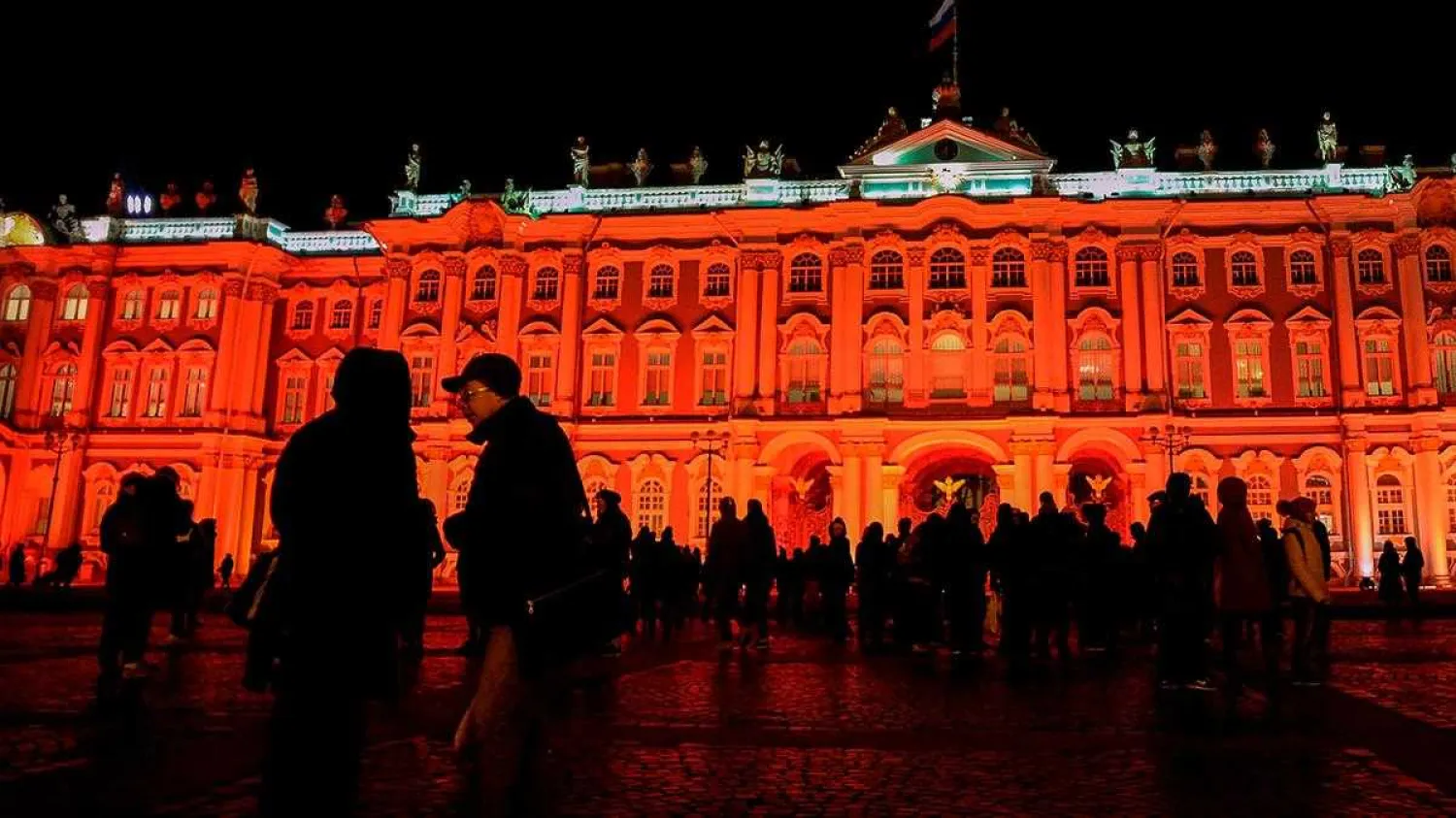More than 4.5 million people visit the Hermitage Museum a year, confirmed the director of the museum and the Russian Orientalist Mikhail Piotrovsky during an interview with Tass agency.
He said that this huge turnout is a "big and serious problem" that faces most of the world's major museums, including Hermitage, which accommodates thousands of visitors.
Piotrovsky said that the museum's main building can host up to 7,111 visitors, and stressed the importance of maintaining safety and security procedures during the reception of ministers.
"The ability of the Hermitage to contain this number of visitors does not mean that it can welcome them at once. Instead, we must allow the entry of the number of visitors whose exit from the museum we can secure in 10 minutes, in case a fire breaks out."
The Hermitage director said that during an international conference in the Vatican, directors of international museums discussed the protection of cities and museums from tourist flows, pointing out that "the Hermitage tackled this problem 40 years ago, when the number of visitors, was like now, about 4.5 million per year."
Piotrovsky explained that such numbers require the protection of cultural facilities without affecting the work and reception of visitors. He also saw that "the problem is twofold: the first is how to protect historic buildings, and the second is how to make museums available to anyone who wants to visit," highlighting that the museums' accommodation ability is limited and that "visitors have to recognize that the museum is like the theater."
To address this problem, museum directors participating in the Vatican International Conference formulated a set of recommendations for museum managements, including practical suggestions such as designing virtual versions featuring all museum exhibits to allow people to see them before visiting the museum.
According to the Hermitage director, the conference participants are working on developing joint international evaluation standards. The Russian orientalist said there is only one rating mechanism for museums dubbed the "Notre Dame rating" and that "the Hermitage is the fourth on Notre Dame's list."
He confirmed that his museum is currently cooperating with the Erasmus University Rotterdam to set global standards to be adopted by experts in the museums rating worldwide. He explained that based on the scientific standards of those lists, the St. Petersburg's Hermitage is always among the top ten museums in the world.









